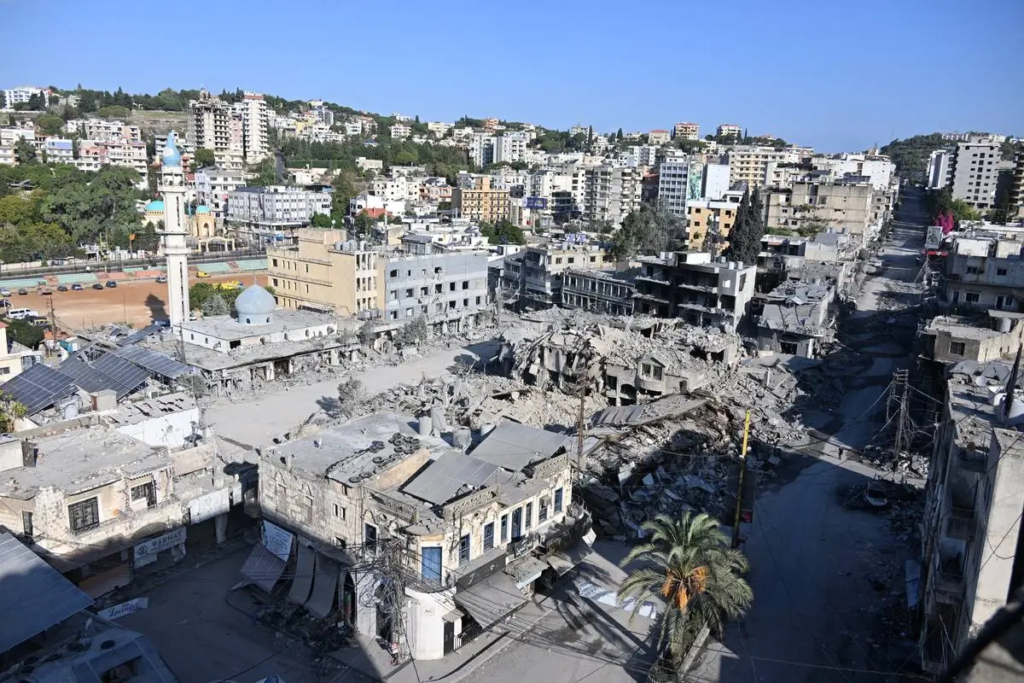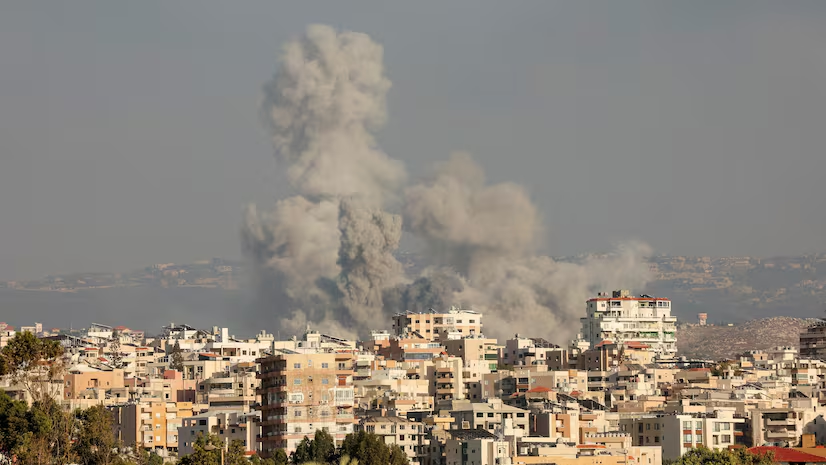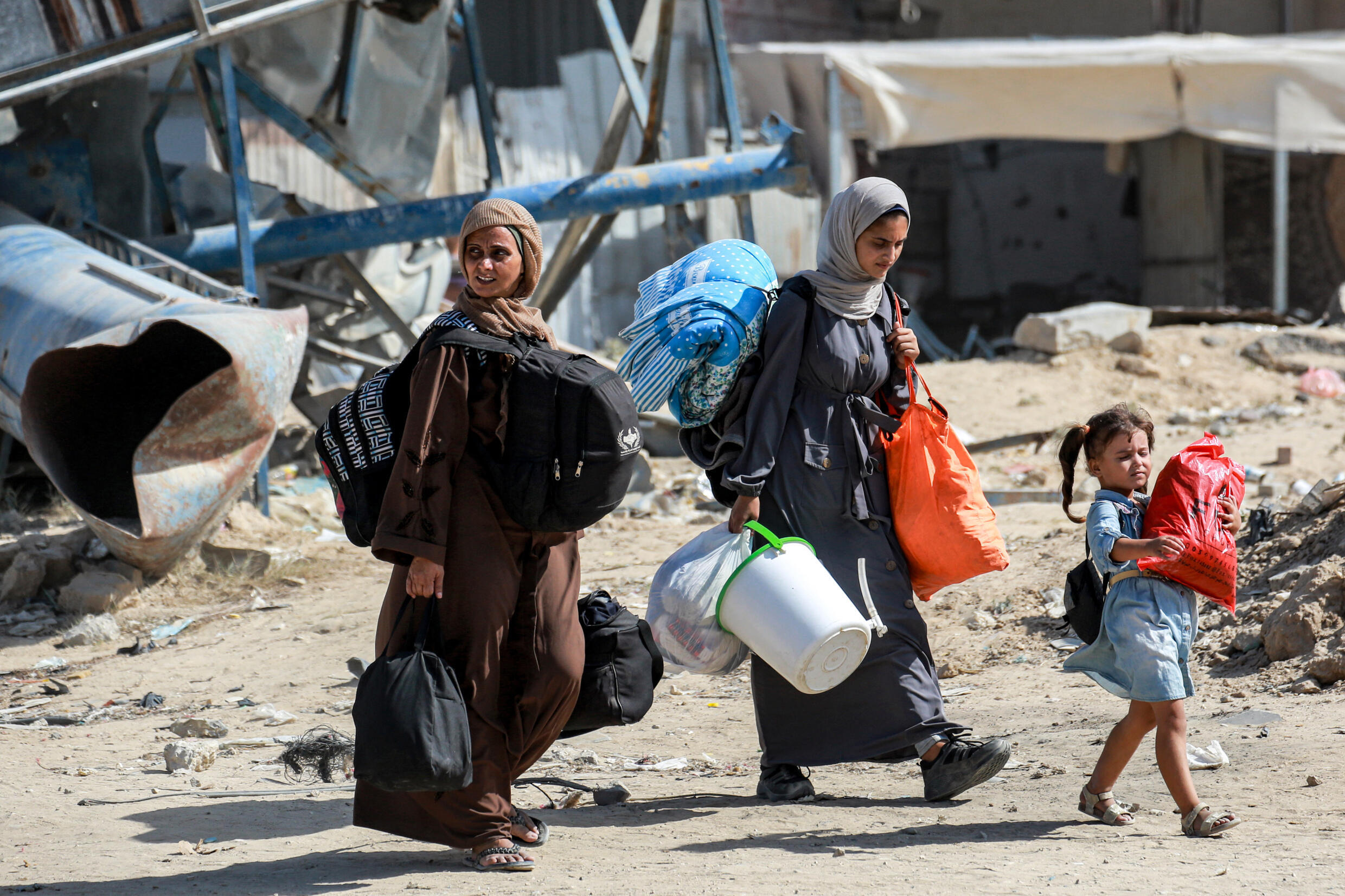Lebanon faces a dire humanitarian crisis as over 1.3 million people have been displaced by escalating Israeli airstrikes. In a situation described as comparable to an earthquake due to the scale and speed of the displacement, the country now urgently requires $250 million monthly to provide essential aid and services for the displaced population.
The gravity of the situation has prompted international discussions, including an upcoming summit in Paris, aimed at addressing Lebanon’s immediate needs and planning for recovery.
With the situation rapidly worsening, the humanitarian community is faced with the immense challenge of providing shelter, food, and medical care to those displaced, many of whom have lost their homes and livelihoods.
The Humanitarian Impact of Displacement
Lebanon’s population has been thrown into turmoil as Israel intensifies its military campaign against Hezbollah, bombing strategic cities like Tyre and Beirut. The forced displacement of more than a million people has overwhelmed Lebanon’s already fragile infrastructure.
Nasser Yassin, a Lebanese Cabinet member, likened the situation to an earthquake due to the speed and scale of the displacement, which took place within just 48 hours.
The comparison is fitting, as the displacement has caused massive destruction and disarray similar to what would be expected after a natural disaster. Homes, businesses, schools, and hospitals have been destroyed, leaving entire communities without basic necessities.
Read : Israel Gives Demand List to White House for Ending War in Lebanon
Many of the displaced have taken refuge in overcrowded shelters, churches, and public buildings, but these makeshift solutions are far from adequate. With the influx of internally displaced persons (IDPs), essential services such as food, water, and medical care are in short supply.
The situation is made worse by the ongoing violence, which has made it difficult for humanitarian organizations to provide assistance. Access to affected areas has been restricted, further complicating relief efforts.
The Lebanese government has called for international assistance to cope with the crisis. The $250 million per month requested is necessary to provide basic aid, but it is only a short-term solution. Long-term reconstruction and recovery will require sustained international support, as Lebanon will need to rebuild its infrastructure and economy after the conflict subsides.
Until then, the focus remains on providing immediate relief to those displaced and ensuring they have access to shelter, food, and medical care.
Israeli Airstrikes and the Destruction of Lebanese Cities
The conflict has been especially destructive in southern Lebanon, where the Israeli military has targeted key cities such as Tyre, one of the oldest cities in the world. The airstrikes on Tyre have destroyed historic sites, homes, and businesses, forcing residents to flee.
The ancient city has been reduced to rubble, with buildings collapsing under the force of the bombs. The targeting of Tyre, a city of great cultural and historical significance, has sparked outrage both in Lebanon and internationally.

In addition to Tyre, Israeli airstrikes have heavily targeted Beirut’s southern suburbs, where Hezbollah maintains a strong presence. These strikes have caused widespread destruction, with entire neighborhoods obliterated. Civilian casualties continue to mount as bombs hit residential areas, and many Lebanese are left with nowhere to turn as their homes are reduced to rubble.
The Israeli military has justified its actions by pointing to Hezbollah’s influence in the region and the need to neutralize the threat posed by the militant group. However, the indiscriminate nature of the airstrikes has raised concerns about violations of international law.
The Financial Times recently reported that the Israeli military forcibly entered a United Nations base, and there are suspicions that incendiary weapons, such as white phosphorus, have been used in the conflict.
White phosphorus is considered a war crime when used as a weapon against civilian populations under international law, and its suspected use has drawn widespread condemnation.
As the airstrikes continue, the humanitarian toll on the Lebanese population grows. Entire neighborhoods have been decimated, leaving tens of thousands of people without homes or livelihoods.
The destruction of infrastructure has made it difficult for aid organizations to access affected areas, further exacerbating the humanitarian crisis. International pressure is mounting on Israel to cease its airstrikes and allow for humanitarian aid to reach those in need.
International Response and the Road to Recovery
The international community has begun to respond to the crisis in Lebanon, but much more is needed. An international summit on Lebanon is set to take place in Paris, where global leaders will discuss the situation and explore ways to provide financial assistance and humanitarian aid. The Lebanese government is hoping that the summit will result in increased funding and support from the international community.
However, the path to recovery for Lebanon is long and uncertain. Even if the violence were to cease tomorrow, the country would still face immense challenges in rebuilding its economy, infrastructure, and society.
Lebanon has been struggling with political instability and economic hardship for years, and the current conflict has only deepened the crisis. The destruction of cities, homes, and businesses has set Lebanon back by decades, and it will take considerable time and resources to rebuild.
The $250 million per month that Lebanon is requesting is aimed at addressing the immediate needs of the displaced population, but it is not enough to solve the long-term challenges facing the country. The displaced individuals will need permanent housing, job opportunities, and access to education and healthcare.
The country’s infrastructure, including roads, bridges, and hospitals, will need to be rebuilt from the ground up. Without sustained international support, Lebanon’s recovery will be slow and fraught with difficulties.
The upcoming summit in Paris will be a crucial opportunity for the international community to step up and provide the assistance Lebanon desperately needs.
Countries in the region, including the United Arab Emirates, have expressed their willingness to contribute to the reconstruction efforts. However, much more is needed to ensure that Lebanon can recover from the devastation caused by the conflict.

In the meantime, humanitarian organizations continue to work tirelessly to provide relief to those displaced by the violence. The challenges are immense, but the resilience of the Lebanese people remains strong. Despite the destruction and displacement, many are determined to rebuild their lives and communities.
However, they cannot do it alone. The international community must rally behind Lebanon and provide the financial and humanitarian support necessary to help the country recover from this devastating conflict.
Lebanon’s humanitarian crisis has reached an unprecedented level, with over 1.3 million people displaced by Israeli airstrikes. The destruction of cities like Tyre and Beirut’s southern suburbs has left entire communities in ruins, and the country now faces the immense challenge of providing for its displaced population.
Lebanon’s request for $250 million per month is a desperate call for help, but it is only a short-term solution to a much larger problem. The road to recovery will be long and difficult, requiring sustained international support and commitment.
As global leaders gather in Paris to discuss Lebanon’s future, the world must not turn a blind eye to the suffering of the Lebanese people.
The international community has a responsibility to provide the assistance necessary to rebuild Lebanon and help its people recover from the devastating impact of this conflict.

